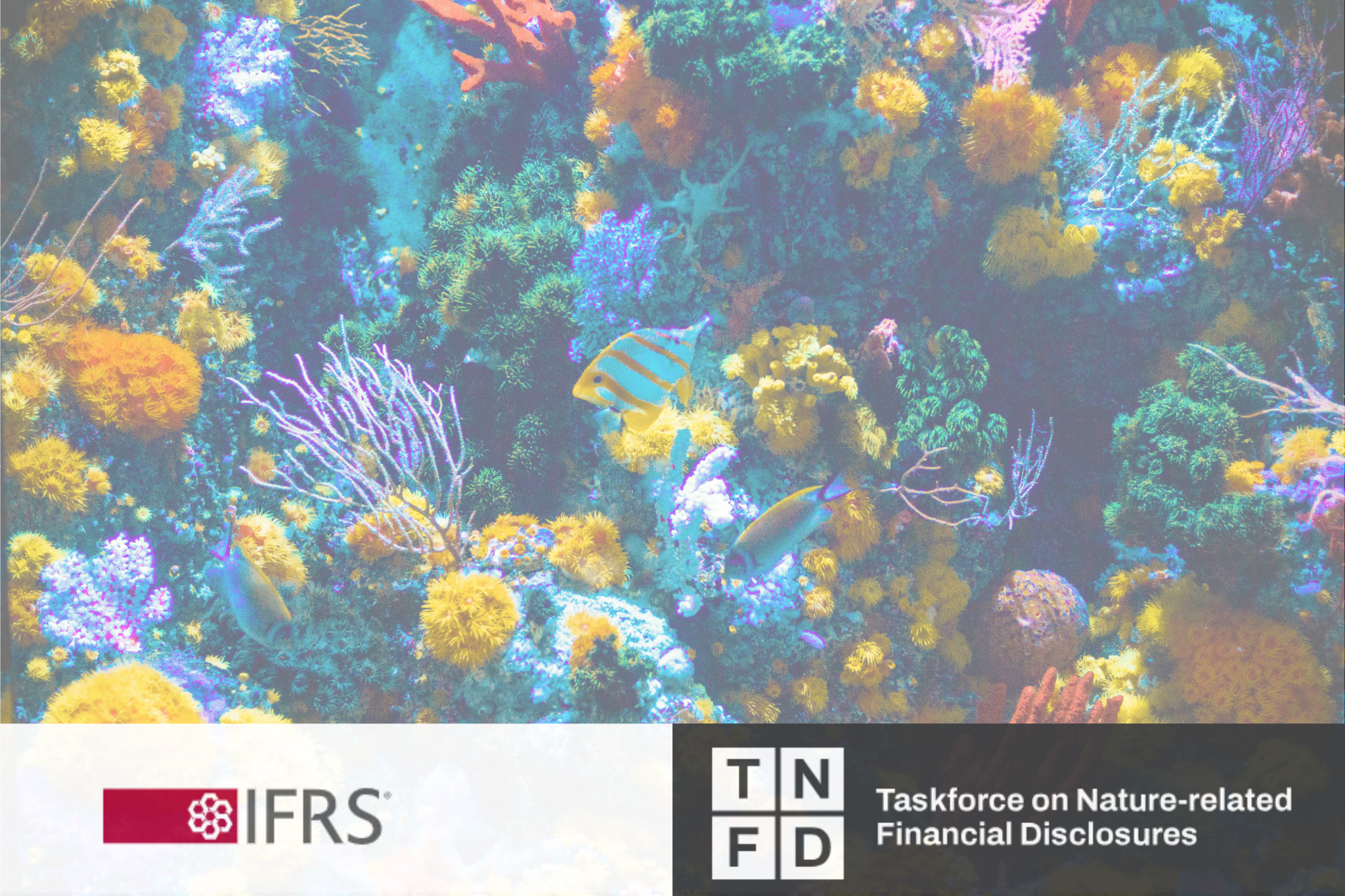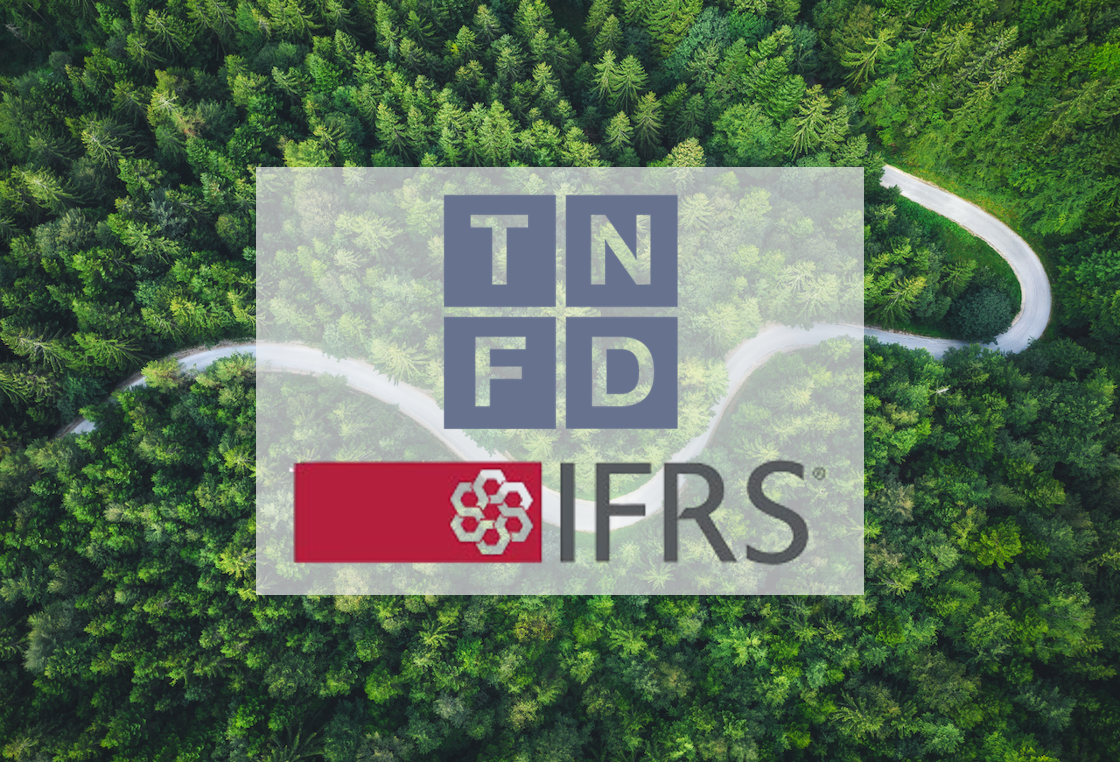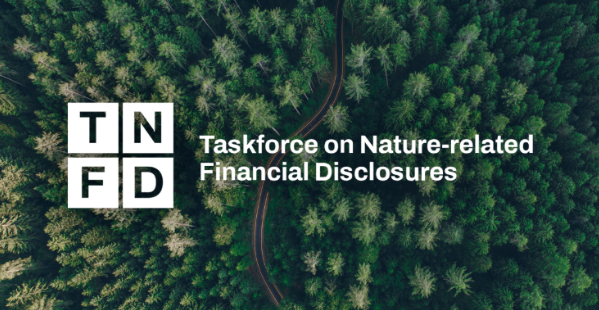ISSB Begins Work on Nature-Related Disclosure Requirements with TNFD Support
As global attention shifts toward the financial relevance of nature, recent coordinated actions by the ISSB and the TNFD signal a major step toward integrating nature-related considerations into mainstream sustainability reporting.

In November 2025, the International Sustainability Standards Board (ISSB) announced that it will advance standard-setting on nature-related disclosures in response to identified investor needs, drawing on the framework developed by the Taskforce on Nature-related Financial Disclosures (TNFD). At the same time, the TNFD confirmed that it will complete the technical work currently in progress by Q3 2026 and pause the commencement of any further technical guidance, while supporting the ISSB’s work on nature-related risks and opportunities. According to both organisations, this step is intended to bring nature-related considerations more firmly into mainstream corporate reporting practice and to advance the global baseline where it relates to nature.
Collaboration between ISSB and TNFD
The collaboration builds on a Memorandum of Understanding signed in April 2025 between the IFRS Foundation and the TNFD. Under this agreement, the ISSB signalled that it will consider the relevance of the TNFD recommendations in meeting the needs of global capital markets and in its research into nature-related disclosures. The TNFD recommendations, published in September 2023, provide guidance for market participants on how nature beyond climate should be assessed, managed and reported. In the November 2025 announcement, the ISSB stated that it will draw on the TNFD framework and its non-siloed approach to nature, including the Taskforce’s recommendations, metrics and guidance, and the Locate, Evaluate, Assess, Prepare (LEAP) approach. Both organisations emphasise that this collaboration is intended to reduce fragmentation in sustainability disclosure and build on established expertise and practice.
Scope of Upcoming Standard-Setting
According to the ISSB, the new work will introduce incremental disclosure requirements on nature-related risks and opportunities that are not already reflected in explicit requirements in IFRS S1 and IFRS S2. The Board will agree on its approach to standard-setting in the coming months, with options including application guidance or amendments to existing ISSB Standards, industry-based guidance, additional sources of guidance, or a new standard, all subject to public consultation. The ISSB is targeting having an Exposure Draft of incremental disclosure requirements ready by the Convention on Biological Diversity (CBD) COP17 meeting in October 2026. The stated objective is to meet investors’ information needs and strengthen the global baseline of sustainability disclosures where it relates to nature by building on the work already undertaken by the TNFD.
Transition in the TNFD Role
Based on the ISSB’s announcement, the TNFD is due to complete all technical work in progress, including the development of additional sector guidance, by Q3 2026. It will pause the commencement of any further technical guidance and focus additional technical efforts on supporting the ISSB’s work programme. While the ISSB undertakes its standard-setting work, the TNFD will continue to build market awareness and capabilities on nature-related issues through capacity-building materials and initiatives, and will encourage partner organisations to advance solutions to nature-related data challenges. With voluntary adoption now standing at 733 organisations and over USD 22 trillion in assets under management, the TNFD framework remains widely used as a basis for nature-related reporting.
Implications for Reporting Entities
The ISSB notes that drawing on the TNFD framework enables it to meet investor needs efficiently by reducing fragmentation and building on leading practice. The TNFD, in turn, highlights that investors already value and increasingly expect nature-related disclosures to form part of the annual reporting cycle of the entities to which they provide capital. Both organisations therefore encourage market participants to continue using the TNFD framework and assessment guidance, which can help them disclose in accordance with IFRS S1, prepare for future incremental ISSB disclosure requirements, and respond to jurisdictional reporting requirements that draw on ISSB Standards.
Conclusion
The recent announcements from the ISSB and the TNFD outline a coordinated shift towards integrating nature-related information into the global sustainability reporting baseline. The ISSB’s planned Exposure Draft in 2026 marks the beginning of a structured standard-setting process, while the TNFD’s ongoing support ensures continuity of market practice. Together, these steps provide a clearer pathway for preparers as nature-related disclosures become increasingly aligned with global investor expectations.



